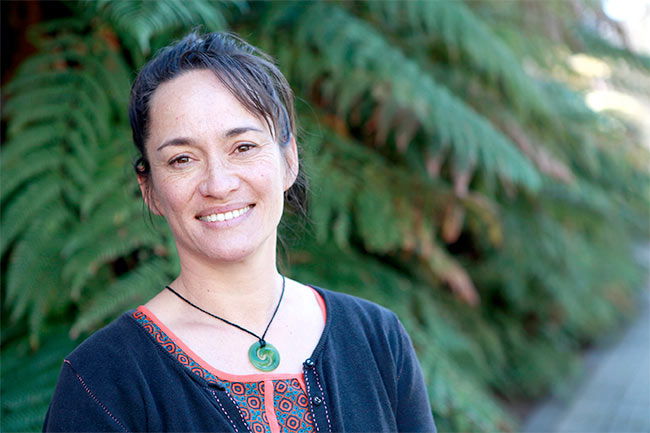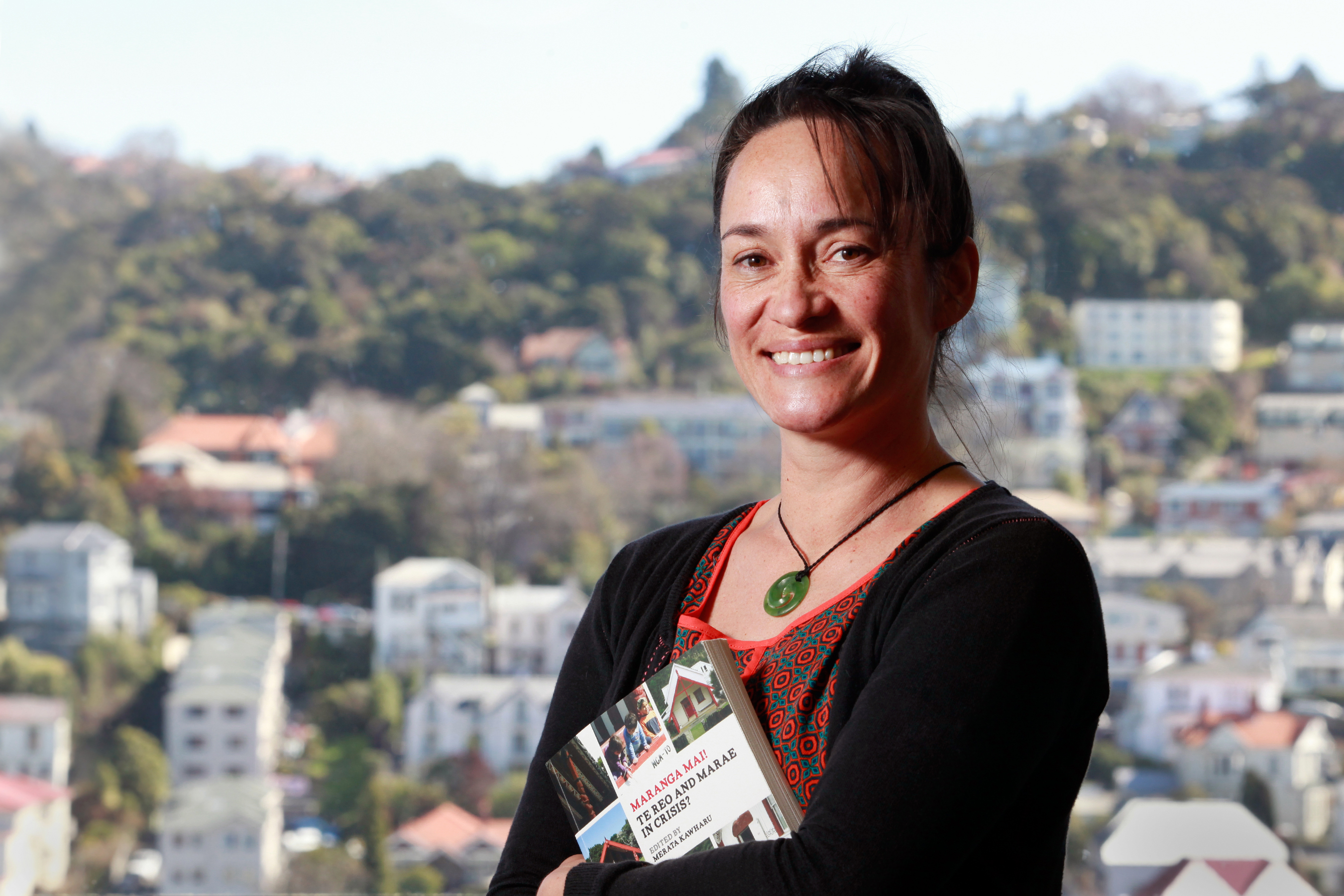Associate Professor Merata Kawharu
Associate Professor Merata Kawharu (Ngāti Whatua, Ngāpuhi) comes from a family where education is highly valued, but grounded in reality, leading her to always keep in mind her father's advice to think about the practical use of what you do, or in other words, ask 'so what?'
Merata is an Associate Professor of Research at the University of Otago and located at Te Tumu School of Māori, Pacific and Indigenous Studies. As a Rhodes scholar, she completed her DPhil in Social Anthropology on kaitiakitanga in 1998. In 2012, she was made a Member of the New Zealand Order of Merit (MNZM) for her services to Māori education.
Merata's research activities have over-arching themes of supporting Māori leadership, community and education. This was expressed most recently with the May 2014 release of her edited book, Maranga Mai! - Te Reo and Marae in crisis?
“Maranga Mai! is a collection of essays, which together make up what is essentially a stock take of where we are at in relation to Te Reo and Marae,” Merata says. It focuses on Taitokerau, but issues there are found elsewhere too.
“We started off very well in the '80s with language revival and programmes like kohanga reo, but we've had a bit of a stall. I wanted to acknowledge that and see what the range of issues is and what solutions there could be.
 “For instance, how can you address the urgent problem of language decline and limited marae leadership succession in the community when the descendants of that community no longer live at their marae and instead live all over the world? In one chapter the Chief Executive of Te Rūnanga o Te Rarawa Kevin Robinson talks about the need to attract families home, but to do that you need jobs, so we need to rebuild and re-empower our communities economically.
“For instance, how can you address the urgent problem of language decline and limited marae leadership succession in the community when the descendants of that community no longer live at their marae and instead live all over the world? In one chapter the Chief Executive of Te Rūnanga o Te Rarawa Kevin Robinson talks about the need to attract families home, but to do that you need jobs, so we need to rebuild and re-empower our communities economically.
“Other chapters in Maranga Mai! discuss the use of the internet in contributing to rebuilding cultural heritage and reo knowledge. One by Otago's Professor Paul Tapsell (Ngāti Whakaue, Ngāti Raukawa) looks at maorimaps.com which helps people connect with their tribal marae. Others by Michael Hennessy, Paratene Tane and myself talk about tewehinui.com – a website that builds cultural knowledge relating to Taitokerau marae communities.”
Among her many other projects, Merata is working on another book with Professor Tapsell on entrepreneurial tribal Māori leadership models, with Marsden Fund assistance. She is currently serving on the NZ Geographic Board and has held various governance and committee roles, including the National Rhodes Committee which makes scholarship selections. Merata also assists claimants from various regions as they address Treaty of Waitangi claim issues.
